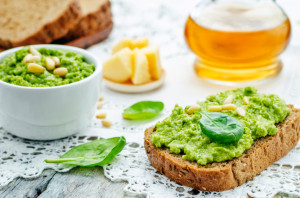
The number of converts to the vegan diet is growing by the year, with an estimated 700,000 in Canada alone. While many are motivated by concerns over animal cruelty and the environment, more and more are citing health reasons for converting, with studies suggesting vegans enjoy greater fitness levels and a decreased risk of illness.
While there are many possible benefits, it is important that anyone making the switch plan carefully to ensure they are still eating a healthy, balanced diet.
For pro athletes, who require a comprehensive nutrition plan with an optimum balance of fiber, carbohydrates, and protein to perform at their best, going vegan can be especially difficult.
Let’s assess how sports nutritionists plan vegan diets for athletes looking to compete at the highest level.
Nutritionists Recognize the Benefits of Vegan Diets for Athletes
Students pursuing a sports nutrition certificate will learn how important fiber is to an athlete’s diet. It reduces spikes in blood sugar level during training, helping athletes maintain energy levels during their workout.
A balanced vegan diet gives an athlete plenty of fiber, as well as potassium, magnesium and other essential nutrients. Vegan diets are also low in saturated fats and can reduce cholesterol. Athletes have reported increased energy levels, lower BMIs and a decrease in illness.

Vegan athletes report increased energy levels
Nutritionists Know the Potential Drawbacks of Vegan Diets for Athletes
An athlete usually needs to eat more than an average person, as they burn more energy in training. As most plant-based foods are low in calories, it can be a challenge for sports nutritionists to plan a diet that allows athletes to get their recommended daily intake, which averages around 3,800 calories for men and 2,600 for women.
Not consuming enough calories can lead to fatigue, and many vegan athletes need regular snacks and protein shakes between their meals in order to boost caloric intake. Athletes on vegan diets can also develop vitamin D and iron deficiencies, and may need to take supplements in order to ensure they are getting enough of these vital nutrients in their diets.
Vegan Endurance Athletes Require Carbohydrate-Rich Diets
The majority of vegan athletes compete in endurance sports, such as running, cycling and swimming. Athletes in these competitions usually have nutrition plans that are high in carbohydrates, which give them the quick energy release required for long, sustained exercise.
Professionals with a nutritionist certificate would recommend diets for endurance athletes that are rich in whole grains such as pasta, brown rice and whole-wheat bread, as well as large amount of fruits and vegetables to ensure they get plenty of vital vitamins and minerals. It is important that they also get plenty of protein, which vegan athletes usually get from nuts and legumes.
High-Protein Diets Are Essential for Vegan Strength Training Athletes
While creating a vegan diet for an endurance athlete can be relatively straightforward, nutrition plans for athletes who require low-carb, high protein diets, such as bodybuilders and NFL players, can be more challenging. Protein from plants is harder to absorb than animal proteins, so athletes must eat larger quantities.

Athletes doing strength training require higher amounts of protein
Nonetheless, some athletes in sports with heavy amounts of strength training are starting to make the switch, and seeing good results. 300-pound Chicago Bears lineman David Carter now eats a 100% vegan diet, and says he’s stronger than ever. His 10,000 calorie-per-day diet involves five meals a day and several snacks, and is centred on vegetables, grains and oats.
Meanwhile, lifelong vegan Robert Cheeke regularly competes as a bodybuilder. He recommends a diet full of plenty of nutritious Thai, Mexican, and Indian dishes.
Can you think of other foods vegan athletes can consume to keep their energy levels up?
Nutritionist training in Ontario will teach you how to help others follow nutritious meal plans, no matter their dietary restrictions!



